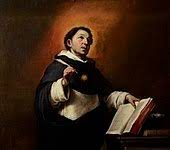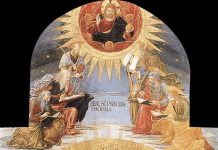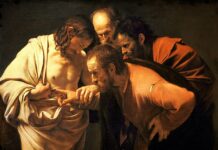Margaret of Castello (+1287 – 1320) is the patroness of the unborn, the disabled, the blind, for she herself was ‘disabled’, even if she may never have thought of herself that way – she had curvature of the spine, was blind, had a limp from legs of different length, and never grew more than four feet tall. She was born to noble parents, ‘beautiful people’: her father with the Shakespearean name of Parisio, the head of the garrison at Metula castle in Mercatello sul Metauro, in east central Italy, not far from Ancona. Parisio had married the lovely Emilia. The successful couple were embarrassed by their deformed daughter. So that no one would ever see her, her father had her locked up in a room at the back of the castle – and had it welded shut. In some small – but inadvertently large – mercy, he allowed her to attend Mass and receive the sacraments.
Eventually, in 1303, at her mother’s urging, Margaret, now a sweet sixteen, but with no coming-of-age parties, nor any friends, nor anyone really, was taken to a local church known as a place for miracles. Seeking a sign of healing, none was given, so her parents abandoned her there. Taken in by the townsfolk, they marveled at Margaret’s radiant goodness, her humility and her lack of any resentment – in fact, only gratitude – towards her parents – those who wished had wished she had never been born.
Margaret, after being expelled from a local convent, eventually, with some help, made her way to the local Dominicans, and joyfully joined their lay Third Order, spending the rest of her brief life teaching catechism to the local children in a small school she had set up, as an act of thanksgiving to the good townspeople, never saying a bad word against those who had given her life. We could use more gratitude in this world so filled with bitterness and resentment. As the parable of the ten lepers signifies, it is one of the most neglected of virtues. We should give thanks, always, in our hearts to the good God.
Known for her holiness and simplicity of life, Margaret died on April 12th, 1320, in her very Christian thirty-third year. The local people, well aware of her sanctity, wanted her buried inside the local parish, a special privilege for few that the priest wanted to deny her. It was only after a disabled girl was cured during her funeral that permission was given. When her coffin was exhumed in 1558, the wood and her clothes had all rotted, but the body of Margaret was preserved, and she performs miracles to this day. We could sure use a few. And her body at that final resurrection will, I may presume, be more radiantly beautiful than many of those who consider themselves so in this passing age.
Blessed Margaret, beatified on October 19th, 1609, by Pope Paul V, is the patroness of the unborn, since one might presume that if ultrasound had existed in the 14th century, or even child euthanasia according to the Grotingen protocol, her parents may have decided to abort her or have her ‘put to sleep’. Then again, perhaps they would not have – for they did feed and house her, even if in solitary confinement, and ‘abandoned’ her in a place where they knew she would be found. Dastardly deeds, to be sure, but we may hope that the prayers of their erstwhile daughter helped convert and save them at the end, as we may pray she does for all of us, and for all those who are even more abandoned than she – by the same act of abortion, of neglect, of lack of charity of all kinds.
We may also call upon Margaret, to intercede for all those in their own ‘confinement’ now – whether by enforced laws, by illness, by self-isolation, that they, and we all, may offer all things, pleasant and unpleasant, to the good God.
Our second drama production here at Seat of Wisdom College – way back in 2003 – was on the life of hunchbacked Margaret of Castello, and I believe the good saint has guided us ever since. She signifies love at its purest – to love those who love us not. An a propos message in the glow of the Christ’s Passion and Resurrection, who causes His rain – and His grace – to fall on the just and the unjust, so that all men have the opportunity, and the very real hope, of being saved, if we but say fiat mihi secundum verbum tuum.
Pope Francis declared Margaret a saint by equipollent canonization on 24 April 2021. Deo gratias. She is one of the most hidden, and, perhaps, one of the most glorious. Amare nesciri, Saint Philp Neri would say – love to be unknown. And known only to God.
Saint Margaret of Castello, ora pro nobis!












